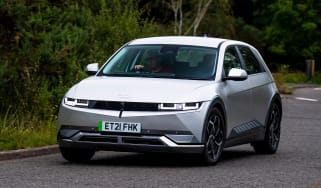What are carbon credits, and what do they mean for the car industry?
Carbon credits don’t directly impact car buyers, but they’re very important assets for car companies to consider and they’ll shape the future of the industry…
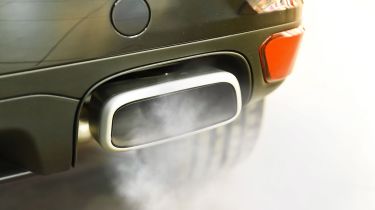
For a majority of car buyers, a car’s CO2 emissions will matter the most when it comes to determining how much you’ll pay in vehicle excise duty, or VED – with new cars, the higher the CO2 emissions, the more expensive its first-year VED bill will be. However, for the car industry at large, CO2 emissions have much wider implications than that.
This is because in the UK and other places around the world - such as the EU member states, the USA and China - car companies have to adhere to specific emissions targets for the new cars they sell. Exceed these limits and there can be hefty fines, even if the limit was only exceeded by a tiny amount. In the UK, the penalty is set at £86 for every g/km a company goes over its annual target, which is then multiplied by the number of vehicles the brand sold that year.
One way in which car companies can reduce their emissions and try to avoid these costly CO2-based fines is by selling cars with emissions that are as low as possible. For sales of so-called ultra-low emissions vehicles, (i.e plug-in hybrids, electric cars and hydrogen cars), car companies are eligible to receive what are referred to as ‘carbon credits’. These can then be used to counterbalance the sales of more polluting cars, bringing down the company’s average fleet CO2 emissions. Carbon credits can even be traded to help other car makers to meet their own respective emissions targets.
Put simply, carbon credits don’t have a major effect on your car buying decision, but they have a pretty big influence behind the scenes on the kinds of cars manufacturers sell, and we’ll go into further depth on how they work below.
What are carbon credits, and how do car companies get them?
Carbon credits are effectively an incentive that encourages car companies to sell more low emissions vehicles in the UK. This, in turn, brings down a car company’s average CO2 emissions, helping it adhere to emissions targets, and increases the number of less polluting cars on the roads.
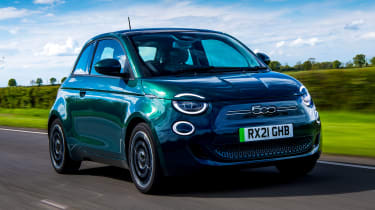
Different countries have their own rules over the way carbon credits are allocated, but in the UK a car company earns a carbon credit for every ultra-low emission vehicle it sells – i.e. a car that has an official CO2 emissions figure of under 50g/km. This means carbon credits can be earned from many plug-in hybrids, as well as all hydrogen and fully electric cars, which have no CO2 tailpipe emissions to speak of.
How much are carbon credits worth?
As an extra incentive for car companies to make and sell more ultra-low emission cars, carbon credits allow plug-in hybrid, hydrogen and fully electric cars to have a greater impact on a car’s CO2 fleet average than a conventionally-powered car. For 2022, all ultra-low emission vehicles will count as 1.33 cars – meaning the sales of three ultra-low emission cars will effectively be the equivalent of four normal cars sold.
What else can car companies use their carbon credits on?
While carbon credits are automatically assigned to car companies based on the number of ultra-low emission cars they sell, in some cases a car maker may have more carbon credits than they need to meet the emissions limits. This is especially the case with companies that make only electric cars, such as Tesla, Polestar and Smart, since their fleet average CO2 emissions are 0g/km by default.
Car companies with carbon credits to spare can use them in other ways. One of the more common options is selling them to a car company that otherwise wouldn’t be able to meet its emissions targets. This, in theory at least, counts as a win-win for both parties: the company selling the carbon credits has an extra revenue stream to benefit from, and the company buying them can avoid paying a much higher amount in fines for exceeding the average CO2 limits. It can also mean it can continue to sell more of its higher polluting vehicles.
Is ‘car pooling’ the same as buying carbon credits?
In principle, carpooling and buying carbon credits do the same job for a car manufacturer, but they do it in slightly different ways. Car pooling involves at least two car companies combining their vehicle fleets together, with the company with the lower average emissions helping to bring down the higher emissions of the other company, which in turn means the latter can hopefully avoid paying any hefty emissions fines.
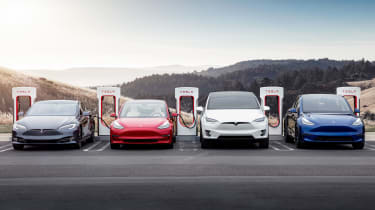
Even though there’s lots of mutual respect between car companies, car pooling isn’t done purely out of the goodness of the hearts of executives. Pooling car makers’ fleets together will typically come at a cost, with the company with the higher emissions paying for the privilege to have its own CO2 figures offset by those of the firm it’s joining forces with.
Take Honda as an example: for 2022, its average CO2 emissions figures will be grouped in the UK with Tesla’s. Since Tesla only produces electric cars, it has a fleet average emissions figure of precisely 0g/km, which will help Honda to bring down its own average CO2 emissions below the fine threshold. It’s not known what Honda will have to pay Tesla for this privilege, but the American firm did make over a £1billion by selling credits to other manufacturers between 2016 and 2018
When will carbon credits be phased out?
In its current form as an ultra-low emissions vehicle multiplier, the carbon credits system will be phased out entirely in 2023, meaning one electric car won’t count towards the equivalent of 1.33 ICE cars as it currently does. However, the carbon credits system will still be used, in a much different format, in the not-too-distant future.
From 2025 onwards, car companies will be able to relax the official emissions targets they are subject to by up to 5g/km, depending on what proportion of the cars they sell in the UK are fully electric or ultra-low emission plug-in hybrids.
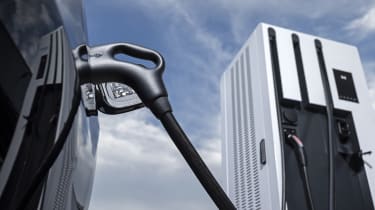
Between 2025 and 2029, the overall target will be at least 15% of total annual car sales, but brands reaching 20% can get 5g/km added to their emissions target threshold. From 2030 the target will be 35% of cars sold being ultra-low emissions and brands hitting 40% can get the 5g/km relaxation.
In quite a few cases, these targets shouldn’t be too difficult for car companies to achieve. Brands from across the car industry have all said they’ll go all-electric by 2030, when the UK Government has also indicated that it will ban the sale of internal combustion engined cars with the possible exception of some plug-in hybrids. The targets for a proportion of total sales to be ultra-low emissions do also give a tiny bit of leeway for car makers that won’t have completely pure-electric model ranges by that time. Performance car brands like Porsche as well as more mainstream car makers such as Audi, Kia, Land Rover and Volkswagen could also be in that group.
Want to know which cars have the smallest whole-life CO2 footprint? Read about the new Green NCAP assessment programme here...
Find a car with the experts



